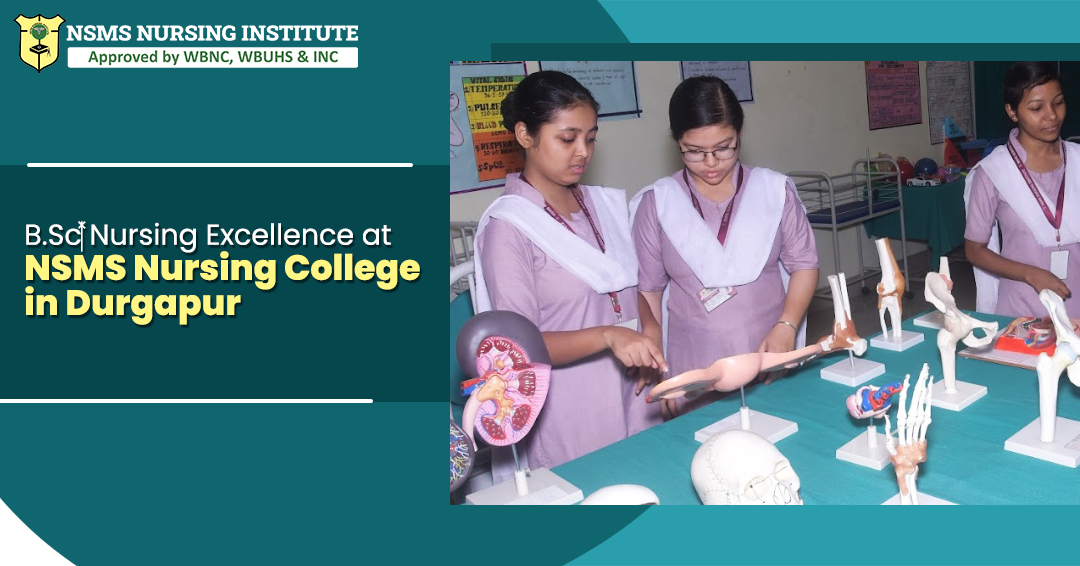Blogs
Discover Premier GNM Nursing...
If you are searching for a GNM Nursing course in Santiniketan that not only provides excellent education but also offers practical clinical training, then NSMS..... Read More
Published On: January 12, 2026
Launch Your Healthcare Leadership...
NSMS Nursing Institute, located in Suri region, offers a life-changing B.Sc Nursing course that equips you to become a healthcare leader. Our four-year program is..... Read More
Published On: January 5, 2026
Begin Your Healthcare Journey...
Would you like to change the healthcare world? NSMS Nursing Institute in Durgapur offers a top-notch GNM course in Durgapur which is the perfect way..... Read More
Published On: December 22, 2025
Your Path to Healthcare...
The healthcare sector in West Bengal is evolving rapidly and as a result, the whole region presents a lot of opportunities to young nursing professionals...... Read More
Published On: December 15, 2025
NSMS Nursing Institute Offering...
NSMS Nursing Institute had a foresight and recognized the healthcare education needs of the students of the Birbhum district. While students are looking for a..... Read More
Published On: December 3, 2025
GNM Nursing Training at...
NSMS Nursing Institute through its GNM program is a medium of quality healthcare education to the Birbhum district. The students of the Santiniketan region who..... Read More
Published On: November 30, 2025
B.Sc Nursing Excellence at...
NSMS Nursing Institute's 4 years B.Sc Nursing program is designed to take a student to different levels of healthcare. Understanding what this B.Sc Nursing college..... Read More
Published On: November 25, 2025
Why NSMS Nursing Institute...
Your choice of the nursing institute will determine how your entire healthcare career will be. Keeping quality education along with neat clinical training, NSMS Nursing..... Read More
Published On: November 20, 2025
NSMS Founder Scholarship 2025...
No one should have to give up on their dreams of going to school because they can't afford it, especially if they want to be..... Read More
Published On: October 15, 2025
NSMS – Durgapur’s Top...
The healthcare sector needs nurses who are great at both clinical work and caring for patients with compassion. The NSMS Nursing Institute in Durgapur is..... Read More
Published On: October 10, 2025










